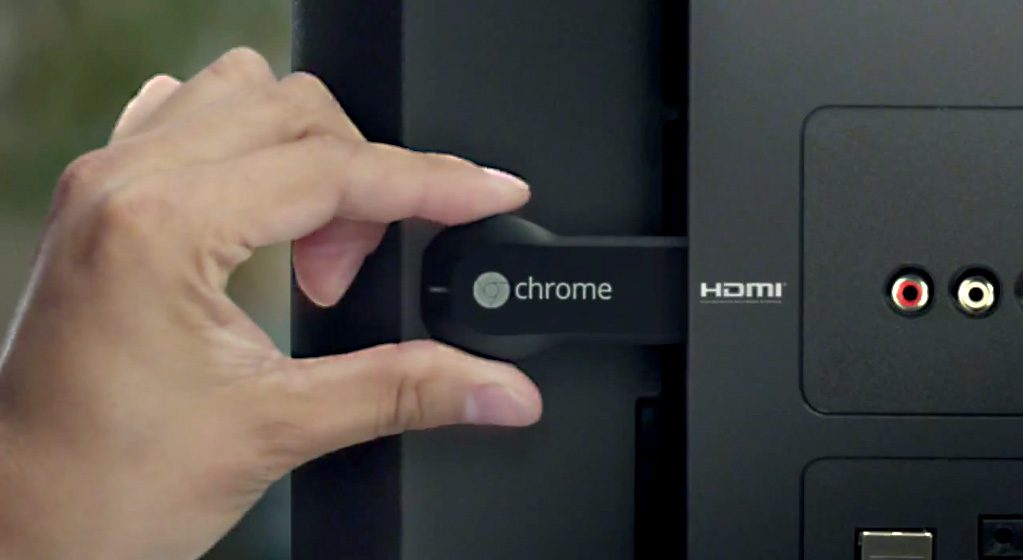Bump is a unique app that’s a dark horse in the world of file transfers. It allows users to transfer files between phones, and between phones and computers, all with a simple ‘bump.’ It works like so: the app running on the mobile device uses the phone’s sensors to feel when the physical bump occurs, which sends the information up in to the cloud. The algorithms in the cloud match devices that feel the same exact bump in the same place, and uses that data to transfer files between devices. It makes sharing and transferring files as easy as NFC, but with the same degree of functionality as dropbox. And now, Google owns this capability. It will be fascinating to see what Google uses it for (one imagines Drive will be updated with Bump, at the least), and how it will add to Google’s already impressive arsenal of startup technology.
Tag: Companies

Google Launches Chromecast
Google finally entered the streaming fray with a thumb-drive-sized product called Chromecast that promises to deliver digital content to your TV with unprecedented ease. Chromecast is a step above other streaming devices in multiple facets: it’s size makes it simple to transport, Google says that the interface is as simple as plug-and-play over any WiFi network, and it’s only $35 – cheaper than any other similar option on the market (like Roku, Boxee, Xbox, or Apple TV). Chromecast also provides for phone integration, but it’s an open interface; it won’t prevent different makes and models from connecting to the HDTV. It has native YouTube, Google Play, and Netflix apps, but you can also watch video from any streaming device you want. The real kicker, though, is the ability to open new Chrome browser tabs on the TV; there’s finally a way to stream content on an HDTV in the same way as users are used to streaming content on their laptops. So although it’s not quite as sexy as Google promises – you do have to charge the device with a cord that takes away from the sleek aesthetic – at a $35 price point, there will be plenty of willing guinea pigs.
Google Looks To Buy Waze
According to the Israeli business publication Globes, Google will acquire the Ra’anana-based Waze for $1.3 Billion in the near future. If the deal does go through, it will knock a major mapping-data resource out of the game, as Waze’s socially oriented data-collection means that they have a social map that is unrivaled – in fact, Apple Maps used Waze when it discontinued Google Maps data in the Maps app. It seems likely that Waze will remain independent, much like Google’s 2010 acquisition ITA Software. By the same token, it seems reasonable to assume that the social functions of Waze’s app will be included in Google’s social networks, and will increase the accuracy and robustness of Google’s existing traffic-reporting systems. Either way, Apple and Facebook will certainly not have access to the data, which might have been the point of the acquisition in the first place.
Google To Open U.S. Retail Stores
According to a report released today, Google plans to open retail stores across the United States in order to showcase its expanding line of physical products. The goal is to have the first flagship stores open for the holiday season in metropolitan areas. Google accelerated plans to open physical locations in order to appease customers unlikely to purchase expensive physical hardware, such as Google Glass, without first trying the device for free. Already, Google has Chrome mini-stores inside Best Buy in the U.S. and electronic shops in the U.K, but stand-alone flagship stores would bring Google’s image as a physical retailer to the fore, and win over more Android skeptics.
